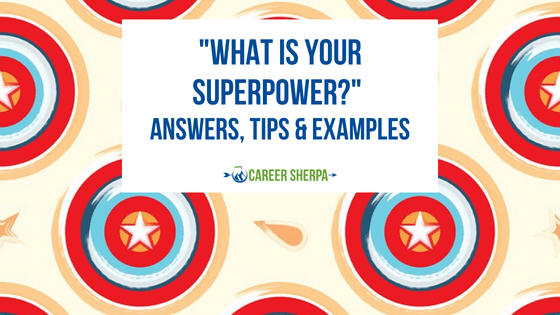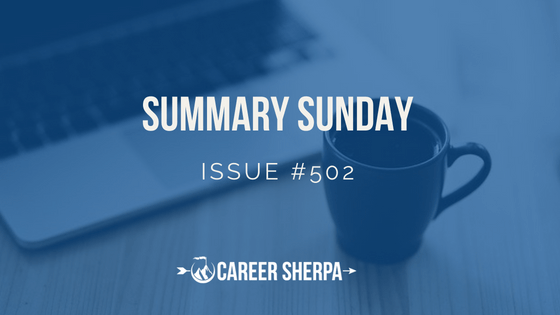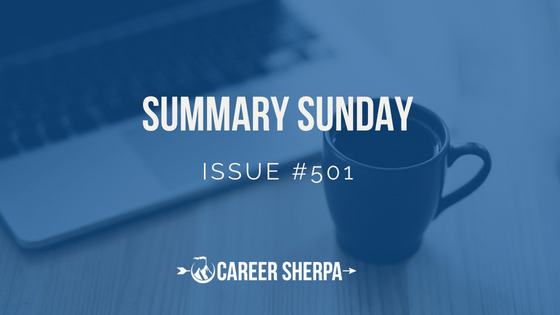
The new year is here! For many of us, January is the perfect time to reflect on our lives and set new goals, hoping to become better versions of ourselves. Most people make personal resolutions, like getting in shape, quitting smoking/drinking, or learning a new language. But, what about career resolutions?
A career resolution is exactly what it sounds like: a resolution for your career intended to help you grow into a better professional. At Work It Daily, we believe that you need to work on your career every day (yes, you do, in fact, need to “work it daily”). So, everyone should make a career resolution or two along with those other ambitious resolutions. They can be little things like learning a new skill or growing your professional network, or bigger goals like landing a promotion or getting a new job.
But how do you know what kind of career resolutions to make?
You can begin by asking yourself, “Am I where I want to be in my career?” If your answer is “no,” you need to take a closer look at your career goals.
Here are five more career questions you should be asking yourself this new year to figure out how to grow your career and become the professional you know you can be:
1. Am I Proud Of My Job Title?

You could be a janitor or a neurosurgeon, it doesn’t matter. If you aren’t proud of what you do for a living, there’s something missing: passion.
Career burnout is real, but sometimes it’s deeper than that. Our passion at 25 won’t necessarily be our passion at 40. And that’s okay.
When we are passionate about what we do, we are proud, because we are doing what we think is important, what we love doing. We are adding value to and making a difference in this crazy worldâin a small, but significant way.
Every job is important. No matter what your job title is, if you aren’t proud of it, you should absolutely change that. Identify that one problem you want to find a solution to, and go after it. What are you waiting for?
Remember: The only bad job is the one you aren’t passionate about.
2. Do I Feel Secure In My Career?

This is a bit different from job security. Actually, job security doesn’t exist. Every job is temporary. Think you can stay in the same job for decades and then retire? Think again.
So, what does it mean to feel secure in our careers?
Well, when we believe as professionals we can add value wherever we are.
You are a business-of-one. A company won’t want to invest in you if they don’t know the kinds of services you provide, the kind of value you could add to the organization, and the problem you could solve for them. Here are some examples of questions that will help you determine if you’re secure in your career:
- Are you adding value at your current job?
- Are you honing your skills, expanding your network, and building your personal brand?
- Do you feel confident that if you lost your job, you’d be able to find a comparable one in the same field?
- Do you feel confident you’d be able to demonstrate to potential employers how you add value?
Since every job is temporary, it’s extremely important to constantly work on our careers and ask ourselves these questions frequently so we always feel secure in our businesses-of-one.
3. Will I Be Able To Achieve Wealth?

When most people think of “wealth,” they think of dollar signs and anything that you can attach a monetary value to. Our jobs help us build wealth. We’re not going to tell you that money isn’t important. Of course it is! It allows you to live the life you want to live. In many ways, money equals freedom.
But the truth is, there are other forms of wealth that are more important that you can’t attach any monetary value to.
Real wealth comes in the form of family, friends, hobbies, experiences, knowledge, and community. If you don’t have these things, money will never fill that void.
So, is your career allowing you to build this type of wealth? The intangible kind? Or are your relationships suffering because of your job? Is your work-life balance nonexistent? Do you have any time to pursue hobbies, learn, or volunteer?
Your career should never inhibit you from achieving real wealth. The best job isn’t the one that pays the most. It’s the one that pays the bills and gives you enough time to live, too.
4. Do I Have Any Regrets?

Just asking ourselves this question can be difficult, because maybe we don’t want to know the answer. Acknowledging that you regret something in your life is the first step to making a change. Guess what? There’s still time to chase your dreams!
If you do have regrets, that doesn’t mean you haven’t been a successful professional. That also doesn’t mean you haven’t had a good career. You could be the most successful person, but if you never got up the courage to start that business, make that career change, or go back to school, you’ll most likely think, “What if?” for the rest of your life.
You’ll never know if you don’t try. Don’t be afraid of failure. Life is just one big experiment, and experiments never fail.
And even if you do “fail,” that’s an incredibly more valuable experience than waiting out the clock on a mediocre career. So, don’t give up on your dreams just yet.
5. Can I Reach My Full Potential In This Role? In This Career?

When we feel like we have more to contribute to society, that’s a sign we haven’t yet reached our full potential. Do you feel like you’re wasting your potential at your current job? Do you think you’d reach your full potential in another career?
Really think about what you want your professional legacy to be. It’s a lot harder to get up in the morning when you don’t find fulfillment in your work. When it comes time for you to retire, are you going to look back on your career and feel like you could have accomplished much, much more with those 50 years?
Everyone has unique gifts, skills, and expertise. When we focus on developing ourselves as individuals, as businesses-of-one, it’s a lot easier to share those things with the world. Give yourself a chance to reach your full potential. You may be surprised by what you can accomplish.
Before you get back into the same routine at work this year, we hope you take a few minutes to ask yourself these career questions. Listen carefully to how you answer them. You may need to make a career resolution or two.
Need more help with your career?
We’d love it if you signed up for Work It Daily’s Event Subscription! Get your career questions answered in our next live event!
This article was originally published at an earlier date.

























